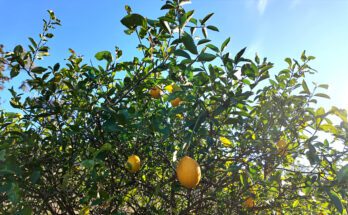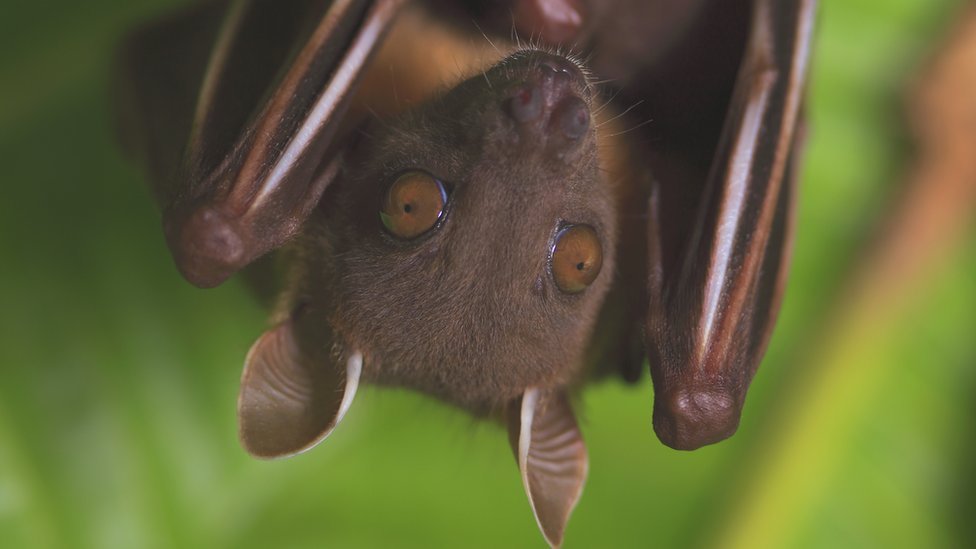
image copyrightScience Photo Library
Every now and then, Dr Mathieu Bourgarel seeks permission from the village elders to visit the sacred caves, bringing a gift to appease the spirits.
Donning mask, overalls, and three layers of gloves, he descends into the darkness, climbing down rope ladders and squeezing through the narrow chambers of caves.
The tell-tale odour of bats is everywhere, their excrement deposited in layers on the floor, like wading through fresh snow.
Occasionally, a bat is startled from sleep, wings brushing by as it takes flight.
People in this part of Zimbabwe call bats “winged dragons”, “flying rats” or simply the “evil ones”.
Like elsewhere in the world, the flying mammals are much misunderstood. For this wildlife ecologist, they’re beautiful and incredible creatures. “They are fascinating,” he says. “People are frightened of something they don’t know.”
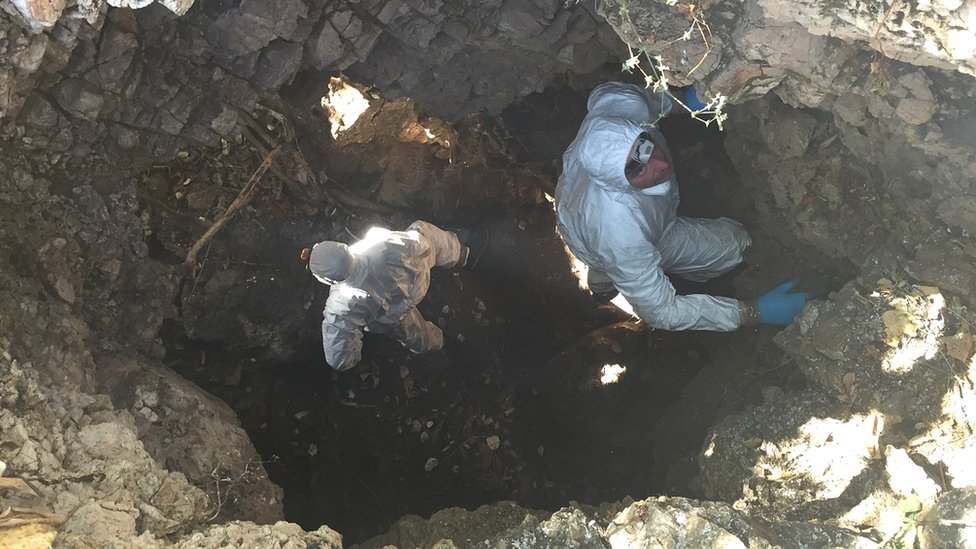
image copyrightM Bourgarel/Cirad
Dr Bourgarel is a virus hunter for the French research institute, Cirad. Working with colleagues at the University of Zimbabwe he goes into the bat caves to collect samples and droppings from bats.
Back at the lab, the scientists extract and sequence the genetic material of bat viruses. They have already discovered different coronaviruses, including one in the same family as Sars and Covid-19.
The research is part of a worldwide effort to investigate the diversity and genetic make-up of the viruses that bats carry, providing the tools to react quickly, should people start to get sick.
“The local population frequently visits these bats’ habitat, in order to collect guano to use as fertiliser for their crops. It is therefore essential to know the pathogens carried by the bats, because they could be transmitted to humans,” says Dr Elizabeth Gori of the University of Zimbabwe.
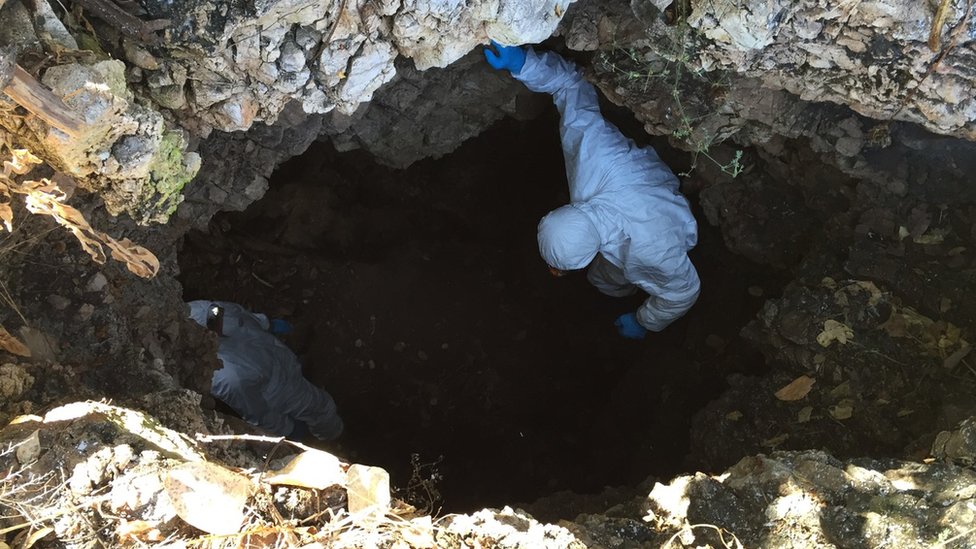
image copyrightM Bourgarel/Cirad
Bat experts have launched a campaign, Don’t Blame Bats, to dispel unfounded fears and myths about bats, which are threatening conservation. They say bats are some of the most misunderstood and undervalued animals on the planet.
Long the target of disdain, persecution and cultural prejudice, they have been blamed for a host of evils visited upon humans. And fears and myths about bats have only intensified in the time of Covid.

- Bats are the only mammal capable of true flight
- Insect-eating bats may save US farmers $3.7bn each year by reducing crop damage
- Over 500 plant species rely on bats for pollination
- Bats are under unprecedented threat from habitat destruction, climate change, hunting and other pressures
Source: Bat Conservation International

The precise origin of the virus that has wreaked such havoc across the world has not been pinned down. But the vast majority of scientists agree that it crossed into humans from an animal species, most likely a bat. That doesn’t mean bats are to blame; it’s our increasing interference with these wild creatures that’s at the root of the problem.
Most outbreaks of emerging diseases can be linked to human destruction of nature. When forests or grasslands are razed to graze cattle, to grow soy or to build roads and settlements, wild animals are forced ever closer to humans and livestock, giving viruses an opportunity to jump ship.
“It is undeniable that bats, such as many other animal groups, present real risks as hosts for potentially dangerous diseases,” says Ricardo Rocha of the University of Porto, Portugal.
But he points out that when you control for the number of bat species (a whopping 1,400 or more), the number of human-infecting viruses is similar to other mammalian groups, such as birds, domestic animals and rodents.
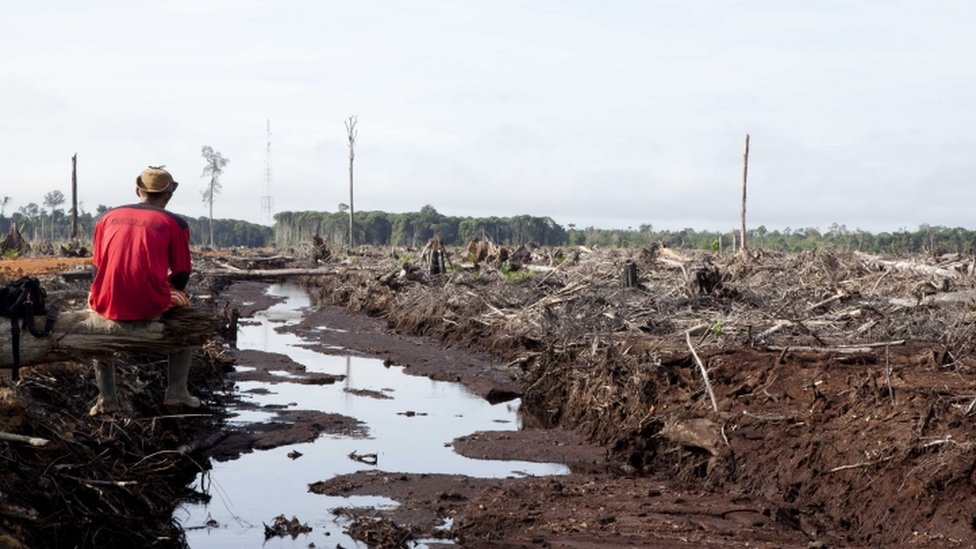
Scientists estimate that three out of every four new or emerging infectious diseases in people come from animals. A warning of the dangers came in 2002, when the mysterious illness, Sars, emerged in China, killing almost 800 people around the world.
In 2017, researchers identified a colony of horseshoe bats living in remote caves in Yunnan province that harboured genetic pieces of the human Sars virus. They warned then that a similar disease could emerge again, and they were proved right.
But rather than blaming one species or another, we need to reassess our relationship with the natural world, says Dr Rocha. He points out that bats are vital for healthy ecosystems and human well-being.
Bats suppress insects that swarm over crops. Plants in the tropics rely on them for pollination, including cocoa, vanilla and durian fruits. And they disperse the seeds of trees found in rainforests, helping in the fight against climate change.
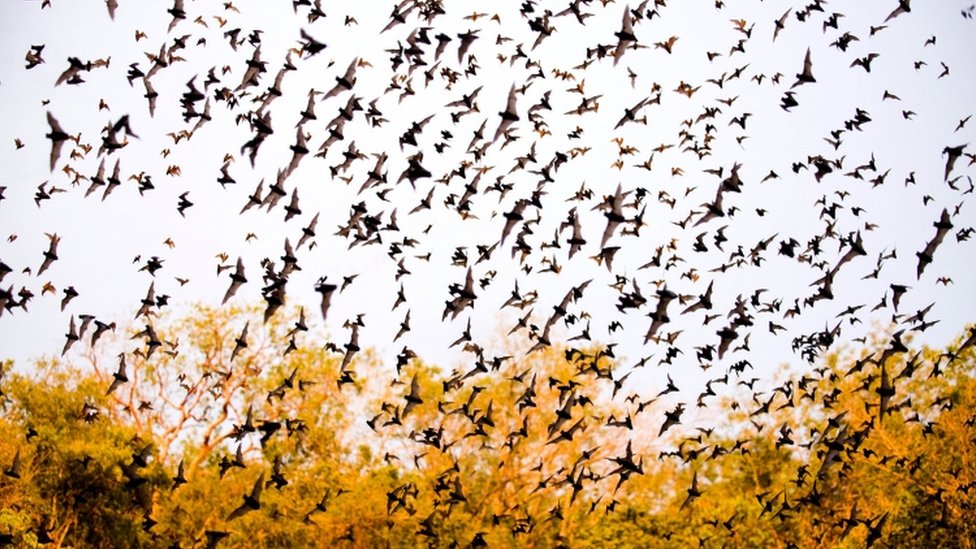
It would be a “terrible outcome” if bats were demonised, since the spread of diseases from animals to humans is much more about humans encroaching into their domain than the other way around, says Dr David Robertson of the University of Glasgow. The antecedents of Covid-19 have likely been circulating in bats for decades, he says, with the ability to infect other animal species too.
There have been isolated reports of Covid-related backlash against bats, including actual or intended killings in Peru, India, Australia, China and Indonesia.
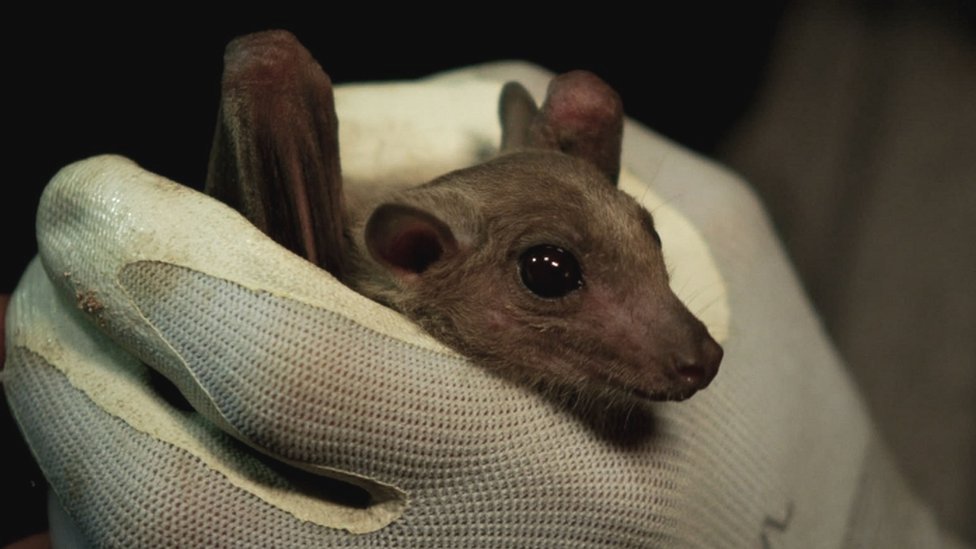
“A major concern is that many bat species are threatened with extinction, so even small instances of misguided violence could cause irreversible damage and have catastrophic flow-on effects for ecosystems that humans rely on,” says Douglas MacFarlane of the University of Cambridge.
Bats have lived alongside humans for centuries, for mutual good. In the university town of Coimbra in Portugal, bats have occupied an 18th Century library for more than 300 years, feasting on insects that might otherwise destroy manuscripts. Visit at dusk and you might see them flit out of the library windows and swoop down over the steep cobbled streets.
Ricardo Rocha says we must remember that bats are an integral part of the complex natural webs that keep ecosystems healthy. “If there is a big take-home message from this unfortunate moment in history it’s that making nature ill, makes us ill,” he says.
Follow Helen on Twitter.
Read MoreFeedzy
